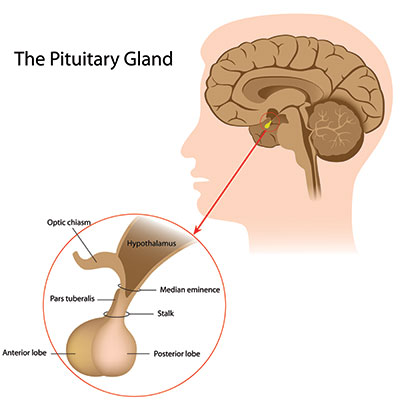
A pituitary tumor is a tumor located on the pituitary gland, which is located behind the nasal passages below the brain. Patients may have a this tumor if they experience symptoms such as headache, loss of vision, decreased libido, nausea, dry skin, growth failure, intolerance to cold, fatigue, constipation, abnormal blood pressure, frequent urination and more. Depending on the size and location of the tumor, most patients must receive corrective surgery.


 Patients with an operable pituitary tumor are treated through a
Patients with an operable pituitary tumor are treated through a 
